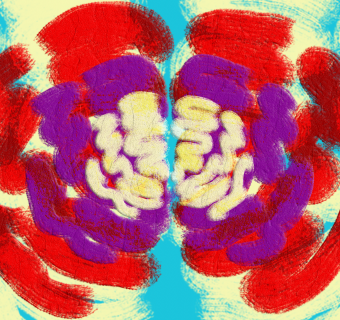Prior to this month, I knew nothing about breast augmentation (more commonly known as “boob jobs”). My exposure was basically limited to the trashy, reality TV shows I caught glimpses of while surfing through channels, and random magazine covers I’d glaze over in the checkout line at the grocery store. After taking in Absolutely Safe (2007), a documentary on breast implants, hosted by the U.Va. Women, Gender, and Sexuality (WGS) program on Feb. 4, I feel much differently.
What little I knew has radically changed. A topic I thought people just joked about has lost all humor. This documentary introduced a number of critical issues around the topic of breast implants and did so with such great stewardship, that something I didn’t care or think about at all, has now become an item of my concern.
The screening included a panel with the filmmaker herself, Carol Ciancutti-Leyva, and Judy Norsigian, the co-founder of Our Bodies, Ourselves, a public-interest organization that specializes in female reproductive health and science. The event was co-sponsored by the Maxine Platzer Lynn Women’s Center and the Jefferson Chapter of the Association of Women’s Health, Obstetric and Neonatal Nurses (AWHONN), who sent a number of very friendly and incredibly knowledgeable nurses to sit in the front row of the showing. Absolutely Safe was inspired by the filmmaker’s mother, Audrey Ciancutti, who became ill shortly after having silicone implant reconstructive surgery, post-double-mastectomy. Although she had just survived breast cancer and her immune system was significantly weakened, Audrey recalled conversing with her doctors who assured her about the safety of the procedure. Within a year, Audrey’s implants ruptured and she experienced a marked decline in health, including complete loss of energy and an assortment of aches and pains. This prompted her daughter, the filmmaker, to investigate if other women with implants experienced similar problems. The documentary primarily follows two different women: Deneé, a young married woman who has wanted breast implants for as long as she can remember, and Wendi, an older woman who has felt unlike herself since she got cosmetic breast implants, and would do anything to have them removed from her body.
- Breast implant manufacturers study more extensively and comprehensively the long-term effects of having breast implants in the body (beyond the short-term data available).
- Women who choose to have the procedure, regardless of whether it is purely cosmetic or part of a reconstructive, recovery plan after breast cancer, should be made aware of the risks through a thorough informed consent procedure.
And on balance, these are reasonable advocacy goals. The film was well produced and even though it premiered in 2007, the issues remain relevant, for sadly, not much has changed. The one thing I did notice as a viewer in the audience that is conspicuously absent from the film are any women - or people at all for that matter - of color. I would have enjoyed hearing the perspective of other women whose decisions to have the surgery or have implants removed may have been informed by their racial or socio-economic standing, but did not see that in the film. The absence and invisibility of these accounts presented a limited scope of the issues facing women who seek out breast augmentation. Of course, Ciancutti-Leyva only directly trailed the stories of two individuals, but a diversity of experiences would have been interesting to see told on the big screen. In summary, Absolutely Safe does an excellent job of taking the subject of breast implants - a topic that has been idolized, put on a pedestal, mocked, reduced – and yet at the same time, admired from a distance - and put it into the spotlight for critical investigation. It raises many important questions that people simply are not asking. If you are looking to break beyond the stereotypical associations revolving around breast implants, Absolutely Safe may be your best shot at getting a good – and fair – look at the issues.






